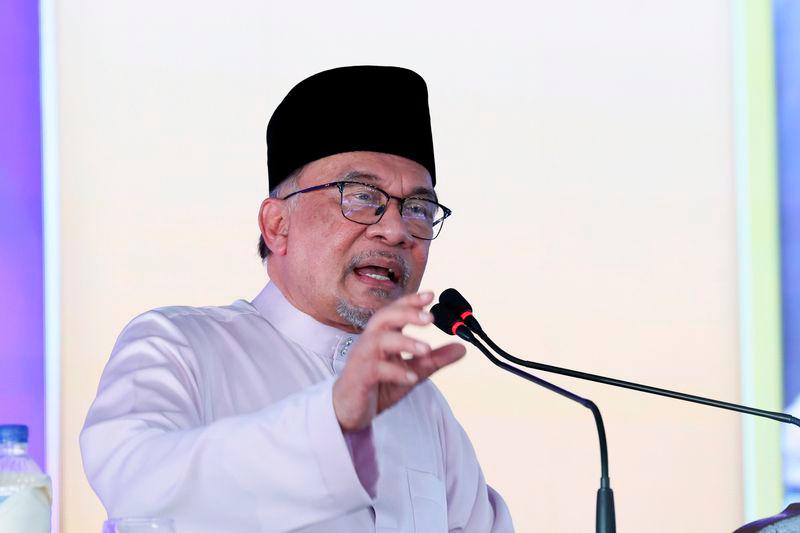KUALA LUMPUR: Malaysia should move faster to build a robust ecosystem to drive the development and adoption of artificial intelligence (AI) technology in the current post-normal era, said Prime Minister Datuk Seri Anwar Ibrahim.
He said that after leading the government for a year and a half, he saw that the country’s challenge was the lack of determination to explore new thinking and to do it quickly.
“We cannot use the old approach. If we need to have more engineers, then, an immediate approach should be taken (to get them) because this post-normal era compels and demands us to make changes swiftly and promptly,” he said while launching the 2024 Malaysia Artificial Intelligence Nexus (MY AI NEXUS) programme here today.
Anwar also outlined the four cores of the ecosystem, namely AI governance to ensure a systematic AI innovation ecosystem; AI catalyst through the Malaysia Artificial Intelligence Consortium (MAIC) to ensure coordination in the field of education, development and AI application; AI industry which will see collaboration with multinational companies; and AI talent that includes professionals and skilled individuals through education and training programs as well as industry collaboration with academia.
Also present at the event were Higher Education Minister Datuk Seri Dr Zambry Abdul Kadir, Communications Minister Fahmi Fadzil, Digital Minister Gobind Singh Deo, and Science, Technology and Innovation Minister Chang Lih Kang.
At the same event, Anwar also launched the AI Faculty at Universiti Teknologi Malaysia (UTM), and praised the university's success in establishing the faculty within just four months upon request by the government.
“This means we are capable of making changes. If universities, which are the beacon and leaders of national and people’s thinking, are not ready to embrace enlightenment, reach for new heights of thought, explore uncharted territories, and fail to demonstrate this capability, we will be left behind,” he said.
The Prime Minister also emphasised the need to produce more skilled engineers as Malaysia currently lacks about 30,000 engineers to meet industry demands.
Therefore, Anwar urged the Ministry of Higher Education (MOHE), universities, and training institutions to interact with industry representatives regarding the need to enhance training quality to produce highly skilled engineers.
“I have asked the representatives of Nvidia, Google, Microsoft, Amazon, Huawei and Ericsson and they all said that in terms of discipline, our new engineers and science graduates are quite good, but we are still lacking in terms of the skills, abilities and specialisation required,” he said.
The Prime Minister said universities and training institutions need to emphasise the quality of engineers produced and not just the number because investment in the country will be affected if the industry feels their skills are not up to the required level.
Anwar also stressed the need to re-engage the interest of young people, especially students, in Science, Mathematics, Engineering and Technology (STEM) subjects which are currently eroding.
“Otherwise, the ecosystem will not be built. We can talk and launch AI today, but preparations from the grassroots to higher levels are not there,” he said.
To that end, Anwar said all levels of the Ministry of Education and schools should think of methods to make the subject interesting and not boring, adding that teaching through AI technology could be considered to attract their interest.









